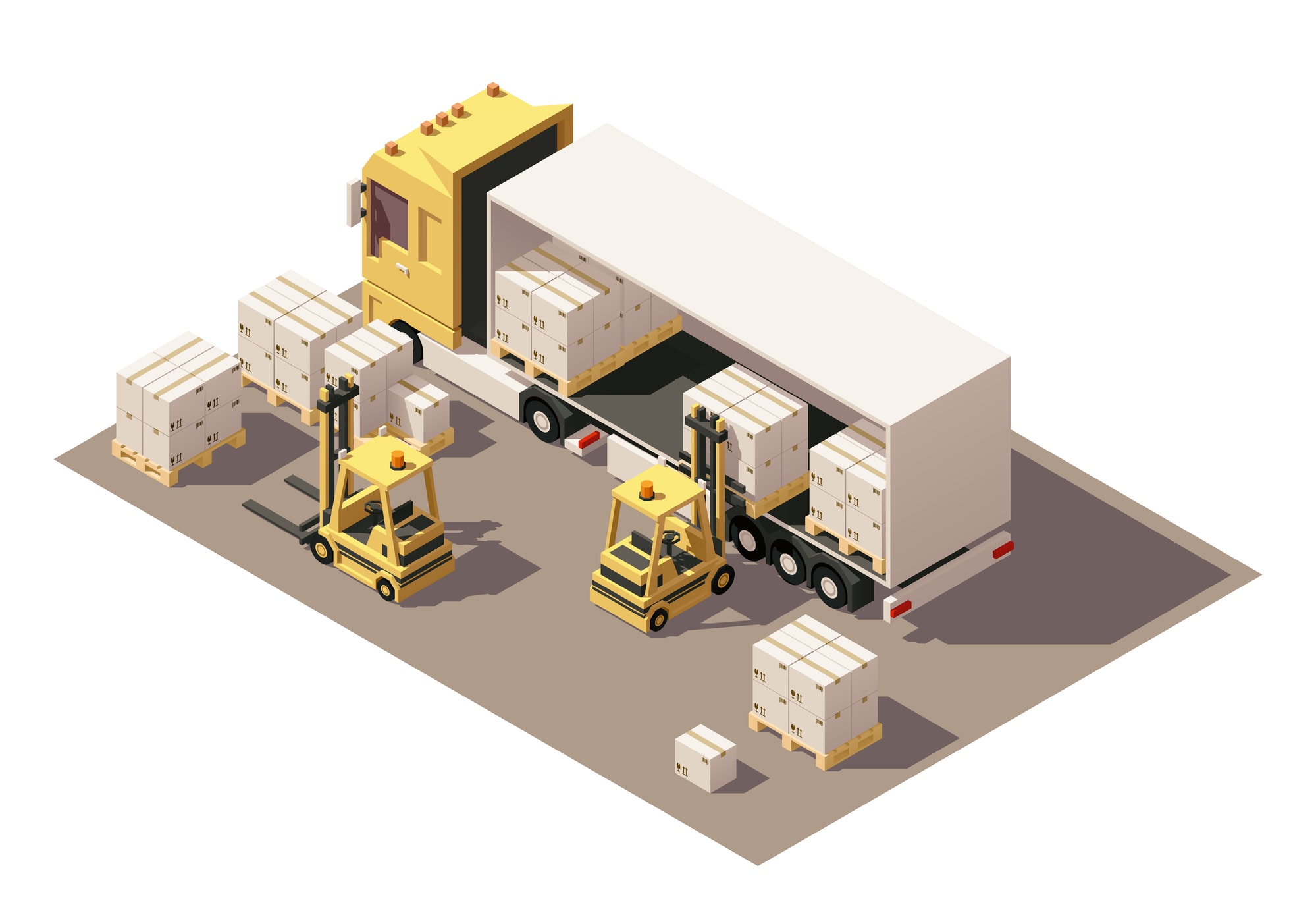In freight shipping for business needs, companies often require cost-effective solutions for smaller deliveries. Here is where the option of LTL freight shipping, or normally known as Less Than Truckload freight, comes into use. ShipEX Logistics offers reliable and competitive LTL shipping services, with specialization for your particular needs. Here we’ll explore exactly what LTL shipping is, how it works, and why it may be the ideal choice for your business.

Understanding LTL Freight Shipping
Less-than-truckload (LTL) shipping is a freight option where shippers are not required to fill an entire truck, allowing them to share space with other shipments. In contrast to paying for a full truckload, which costs an arm and a leg, several shipments belonging to different shippers are put together into a single shipment to share the same truck. This helps in reducing the overall shipping cost. Normally, an LTL shipment weighs anywhere between 150 to 15,000 pounds, making it perfect for smaller shipments that would not fill an entire trailer.
Consolidating multiple shipments in one truck lowers the overall cost to the shipper. This allows companies to make additional money off of those with regular, smaller shipments or those that do not need the extra space provided by full truckload shipping. LTL shipping also allows a more flexible approach to managing freight. In addition, most of the LTL carriers have extensive networks of terminals, so this method of shipping can offer more frequent and reliable service, hence a huge advantage for companies trying to balance cost with delivery needs.

How LTL Shipping Works
LTL carriers operate by consolidating freight from multiple shippers into one truck. This method enables different businesses to split the transportation cost while effectively moving their goods over long distances. Each shipment is given a freight class, which involves several factors: weight, dimensions, handling, and special services. This affects LTL freight rates directly and, in turn, has its say in the entire calculation of transport costs.
Once the freight is loaded, it embarks on a journey through a network of strategically located terminals.
Sometimes, this may involve loading the freight into other trucks to continue on the way to reach the eventual destination. This often means several points of contact, where shipments are counted, sorted, and sometimes combined with other freight moving in generally the same direction. Records of shipment management in this process are well documented, with records such as the Bill of Lading. This usually acts like a contract between the shipper and the carrier in regards to the shipment, stating the terms and conditions involved, and is necessary for tracking and accounting purposes.

Advantages of LTL Shipping
LTL shipping is a self-sufficient mode of shipment, having its own set of advantages for companies that require the movement of less than a full truckload of goods. Whether it is to attain cost savings, gain flexibility, or just to reduce one’s carbon footprint, less-than-truckload shipping can indeed be an efficient and practical solution. Below are some key benefits of choosing LTL for your shipping needs:
-
Cost-Effective: LTL cargo carriers present an avenue to share truck space with other shippers. You pay for the portion of the truck used by your freight. Such sharing greatly cuts down the shipment cost compared to booking a full truckload, making it economical for small loads. It optimizes your space and resources to ensure that you operate within your budget while goods are being moved to the right destinations.
-
Flexibility: LTL shipping offers the flexibility to ship smaller quantities more frequently, giving businesses better control over inventory and supply chain operations. This adaptability is beneficial when market conditions or consumer demands change rapidly, allowing for swift responses. Depending on your needs, LTL allows you to modify one’s shipping schedule without having to commit oneself to the shipping capacity of an entire truck.
-
Competitive Pricing: Most of the LTL carriers offer competitive prices, which attracts customers when they do not need a whole truckload. You pay just for your used space, which LTL shipping helps keep your cost low, and your shipping requirement is met accordingly. It is a cost-effective way whereby businesses can balance affordability with effective service.
-
Variety of Services: LTL shipping has inside delivery, liftgate service, and even expedited shipping. As value-added services, they will enable you to tailor shipments to meet specific needs for an additional layer of convenience and reliability. Whether it is special handling or faster delivery you need, LTL shipping can be tailored to handle whatever needs may arise.
-
Environmental Impact: LTL shipping allows many shipments to share a truck, thus reducing the number of trucks on the road. It means lesser carbon dioxide emissions into the atmosphere and a clean environment. With LTL, you go green in transporting your merchandise. In this respect, by opting for LTL, you are not only streamlining your logistics but also taking part in minimizing environmental impact.

Factors Affecting LTL Shipping Rates
Several factors influence LTL shipping rates, including:
-
Freight Class: The shipment class, which comes under the category of the National Motor Freight Classification, makes much difference in price. Freight class is determined by aspects such as density, stowability, handling, and liability. Shipments coming under a higher freight class are usually more expensive as they require extra caution with space during shipment.
-
Weight and Dimensions: The weight and size of any shipment directly relate to its price. The heavier and bulkier the shipment, the more space it occupies and greater resources are needed for loading and unloading, which again increases the shipment rate. Carriers usually assess these factors in order to find out how given space could be used most effectively, and that makes up a price.
-
Distance: The next key factor that affects the cost of your shipment is the distance it needs to travel. This is because increasing distances mean longer hours of fuel, time, and means required to move the shipment, thereby automatically translating into greater fees. Whether your freight is crossing state lines or crossing the country, the mileage involved applies to the pricing.
-
Special Services: If your shipment needs added services like liftgates, inside delivery, or handling hazardous materials, this will increase the overall price. More time, more equipment, or special handling is an investment that the carriers will include in pricing.
-
Transit Times: When your shipment has to arrive sooner, expedited shipping options are available but often are more expensive. Expedited services prioritize your freight, allowing it to move more quickly through the carrier’s network, and this can reflect in your shipping rate.

Choosing the Right LTL Carrier
Not all LTL carriers are equal, and you deserve better than an LTL provider who will nickel and dime you with every add-on under the sun. You want a provider that can offer you upfront, no-hassle pricing, reliable service, and a network that will meet your logistical requirements. ShipEX Logistics partners with only top-rated LTL carriers for maximum care and efficiency in the handling of your shipments.
When selecting an LTL carrier, some factors you would want to consider would include service coverage, transit times, and customer support. A solid network and reliable delivery execution are just two of the most important ways you can ensure minimal disruptions in your supply chain. Knowing your carrier and the unique industry-specific requirements you have certainly goes a long way in making or breaking any particular shipping experience. At ShipEX Logistics, we take these elements to heart, matching our customers with carriers offering reliable and value-added service to keep your business moving.
When to Consider FTL Shipping
Even though LTL freight is a very good option for smaller-sized shipments, there are circumstances where an option for FTL shipping would be more applicable:
-
If your shipment needs to take up the whole truck.
-
If your shipment requires special handling.
-
If the shipment is sensitive concerning time and needs to be delivered without intermediate stops.
This mode of shipment reduces the risk of damage, allowing the shipper more control over the delivery schedule. FTL could handle unique shipping demands for businesses that operate on high-volume orders or goods that are fragile and require special methods of delivery. ShipEX Logistics offers a range of LTL and FTL shipping options.

Simplifying Your Shipping Process with ShipEX Logistics
We are aware of how shipping can sometimes get quite complicated at ShipEX Logistics with multiple shipments, different classes of freight, and various carriers. Our team will go the extra mile to provide you with competitive rates and transparent pricing to ensure that your shipping is as smooth as possible. From shipping LTL freight to booking FTL shipments and even into the specialized services such as inside delivery or hazardous material handling, we have you covered.
We provide ease throughout the entire shipping process by leveraging our first-rate relationships with trusted carriers and using our competence to outmaneuver a number of logistics headaches. With ShipEX Logistics, you are not just getting a service; you are gaining a partner committed to simplifying your logistics needs so you can devote more energy to growing your business.

Conclusion
Less-than-truckload freight shipping is versatile and cost-effective for companies that move smaller shipments. Sharing truck space with other shippers saves money, reduces your environmental impact, and gives you flexible options that work for you. At ShipEX Logistics, our goal is to deliver superior LTL shipping services, and to keep your shipping costs under control. Explore our many shipping services now and let us make sense of the sometimes overwhelming world of LTL freight shipping. Our goal, beyond just moving your freight, is to build long-lasting partnerships that contribute to the continued growth and success of your business.
Whether you are shipping freight for the first time or looking to improve an existing logistics program, ShipEX Logistics is here to guide you through every step of the process. Our team is ready and able to assist you in digging deep into the most cost-effective, reliable shipping options that best fit your needs and ensure your freight will arrive at a destination safely on time. Now, consider your shipping option in the way that this choice alone sometimes makes all the difference to get your supply chain right. Looking for more information on LTL shipping? Head to our blog, where you can also book your next shipment.



